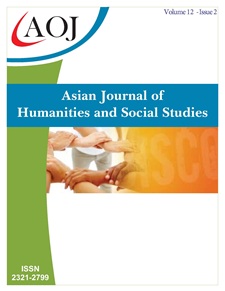The Predicament of Proof in China’s Exclusionary Rule
DOI:
https://doi.org/10.24203/ex2jzw97Keywords:
the exclusionary rule; burden of proof; asymmetrical proof; the selectivity of proofAbstract
According to the principle of the distribution of burden of proof, the logical premise that a court excludes illegally obtained evidence for prosecution is either a defense party can prove that a prosecution party has unlawful investigations, or the prosecution party fails to prove the legality of evidence collection. Although the illegal investigations have become a repeated phenomenon, because of the prosecution party’s selectivity of proof and the asymmetrical proof between prosecution and defense, an investigation regarding the legality of evidence for the prosecution initiated by the court often fall into the predicament of proof that the court fails to ascertain whether there are illegal investigations. Given that the defense party cannot directly prove the illegal investigations and is difficult to challenge the legality of evidence for the prosecution, it is impossible for the court to exclude illegally obtained evidence in the light of the defense party’s application.
References
Wang Chao, Research on the Police Testimony System, People's Public Security University of China Press, 2006 edition.
Fan Chongyi, Study on the Implementation Problems and Countermeasures of the Criminal Procedure Law, People's Public Security University of China Press, 2001 edition.
Sheng Lang (Ed.), Interpretation of the Criminal Procedure Law of the People's Republic of China (revised version), Beijing: Law Press, 2012.
Wang Chao, the Utopia of Excluding Illegally Obtained Evidence, Beijing: Law Press, 2014.
Chen Shixing, The Existence of Perjury by Lawyers Makes Criminal Defense a Formality, Nanfang Daily, July 29, 2011.
Zhang Youyi, Criminal Defense Lawyers Face Six Major Difficulties in Practice, Legal Daily, January 6, 2008.
Zhang Liang, Declaration slogan-style lawyers' rights implementation is very difficult), Legal Daily, December 30, 2009.
Wu Weimin and Seed Jinghua, More than 100 legal celebrities debate the environment for lawyers to practice law), Democracy and Legal System Times, No.1, 2010.
Li Xin, Xie Yalong Retracts Confession in Court, Wants to Get His Name Right, Beijing Morning Post, April 25, 2012.
Xu Hui, When did the court start the illegal evidence exclusion procedure, Shanghai Rule of Law Daily, April 27, 2012.
Zhang Lei, Xie Yalong Says He Was Forced to Confess Under Torture, Prosecution Denies It, Beijing News, April 25, 2012.
Li Na, Defense Obstruction of Testimony Ties the Hands of Criminal Defense Attorneys, Legal Daily, August 8, 2011.
Li Weiwei and Qiu Yuanyuan, Criminal Defense Only 20% of Adults Hire Lawyers, Legal Daily, October 20, 2005.
Huang Xiuli, Less than 10% of Criminal Cases Defended by Lawyers", Beijing Daily, August 29, 2005.
Li Yuanfang, Amendment to the Criminal Procedure Law Can Help Lawyers Break the "Three Difficulties", China Business News, September 16, 2011.
Chen Hongwei,The Reasoning behind Criminal Confessions, Legal System and News, No.7, 2010.
Yang Ming and Zhang Hailin, Illegal Evidence Exclusion: Troublesome Beginning, Oriental Outlook Weekly, No.48, 2010.
Wang Fan and Wang Hong, Xie Yalong's confessions coerced by torture? It's Hard to Prove, Legal Evening News, April 25, 2012.
Zhu Youyou and Chen Jiawei, China's First Case of Illegal Evidence Exclusion Suffers Great Reversal in Final Trial, Rule of Law Weekend, July 25, 2012.
Downloads
Published
Issue
Section
License
Copyright (c) 2025 Wang Chao, Yuan Tian

This work is licensed under a Creative Commons Attribution-NonCommercial 4.0 International License.
- Papers must be submitted on the understanding that they have not been published elsewhere (except in the form of an abstract or as part of a published lecture, review, or thesis) and are not currently under consideration by another journal published by any other publisher.
- It is also the authors responsibility to ensure that the articles emanating from a particular source are submitted with the necessary approval.
- The authors warrant that the paper is original and that he/she is the author of the paper, except for material that is clearly identified as to its original source, with permission notices from the copyright owners where required.
- The authors ensure that all the references carefully and they are accurate in the text as well as in the list of references (and vice versa).
- Authors retain copyright and grant the journal right of first publication with the work simultaneously licensed under a Attribution-NonCommercial 4.0 International that allows others to share the work with an acknowledgement of the work's authorship and initial publication in this journal.
- Authors are able to enter into separate, additional contractual arrangements for the non-exclusive distribution of the journal's published version of the work (e.g., post it to an institutional repository or publish it in a book), with an acknowledgement of its initial publication in this journal.
- Authors are permitted and encouraged to post their work online (e.g., in institutional repositories or on their website) prior to and during the submission process, as it can lead to productive exchanges, as well as earlier and greater citation of published work (See The Effect of Open Access).
- The journal/publisher is not responsible for subsequent uses of the work. It is the author's responsibility to bring an infringement action if so desired by the author.


